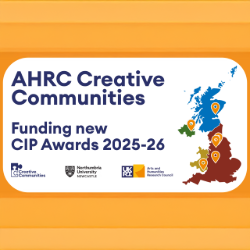-
Study
-
Undergraduate
- UCAS Clearing & Confirmation 2025
- Application Guides
- UCAS Exhibitions
- Extended Degrees
- School & College Outreach
- Information for Parents
-
Postgraduate
- Application Guide
- Postgraduate Research Degrees
- Flexible Learning
- Change Direction
- Register your Interest
-
Student Life
- Students' Union
- The Hub - Student Blog
- Accommodation
- Northumbria Sport
- Support for Students
-
Learning Experience
- Real-World Learning
- Research-enriched learning
- Graduate Futures
- The Business Clinic
- Study Abroad
-
-
International
International
Northumbria’s global footprint touches every continent across the world, through our global partnerships across 17 institutions in 10 countries, to our 277,000 strong alumni community and 150 recruitment partners – we prepare our students for the challenges of tomorrow. Discover more about how to join Northumbria’s global family or our partnerships.
View our Global Footprint-
Quick Links
- Course Search
- Undergraduate Study
- Postgraduate Study
- Information for Parents
- London Campus
- Northumbria Pathway
- Cost of Living
- Sign up for Information
-
International Students
- Information for International Students
- International Events
- Application Guide
- Entry Requirements and Education Country Agents
- Global Offices
- English Requirements
- English Language Centre
- International student support
- Cost of Living
-
International Fees and Funding
- International Undergraduate Fees
- International Undergraduate Funding
- International Masters Fees
- International Masters Funding
- International Postgraduate Research Fees
- International Postgraduate Research Funding
-
International Partners
- Agent and Representatives Network
- Global Partnerships
- Global Community
-
International Mobility
- Study Abroad
- Information for Incoming Exchange Students
-
-
Business
Business
The world is changing faster than ever before. The future is there to be won by organisations who find ways to turn today's possibilities into tomorrows competitive edge. In a connected world, collaboration can be the key to success.
More on our Business Services -
Research
Research
Northumbria is a research-rich, business-focused, professional university with a global reputation for academic quality. We conduct ground-breaking research that is responsive to the science & technology, health & well being, economic and social and arts & cultural needs for the communities
Discover more about our Research-
Quick Links
- Research Peaks of Excellence
- Academic Departments
- Research Staff
- Postgraduate Research Studentships
- Research Events
-
Research at Northumbria
- Interdisciplinary Research Themes
- Research Impact
- REF
- Partners and Collaborators
-
Support for Researchers
- Research and Innovation Services Staff
- Researcher Development and Training
- Ethics, Integrity, and Trusted Research
- University Library
- Vice Chancellors Fellows
-
Research Degrees
- Postgraduate Research Overview
- Doctoral Training Partnerships and Centres
- Academic Departments
-
Research Culture
- Research Culture
- Research Culture Action Plan
- Concordats and Commitments
-
-
About Us
-
About Northumbria
- Our Strategy
- Our Staff
- Our Schools
- Place and Partnerships
- Leadership & Governance
- University Services
- History of Northumbria
- Contact us
- Online Shop
-
-
Alumni
Alumni
Northumbria University is renowned for the calibre of its business-ready graduates. Our alumni network has over 250,000 graduates based in 178 countries worldwide in a range of sectors, our alumni are making a real impact on the world.
Our Alumni - Work For Us
What will I learn on this module?
This Module further develops and embeds concepts introduced at Level 4, building on your knowledge of visual language. Cinematography describes the art of photography and camerawork in filmmaking, not just capturing pretty pictures. Cinematic storytelling manipulates our emotions, revealing character and plot - sometimes without our immediate knowledge. An audience may not be consciously aware of the cinematography techniques being employed – but can feel they have meaning. Cinematography exists in context and its only purpose is to serve the material at hand. There are 6 main components related to Cinematography. As well as being technical, these can be used as part of an aesthetic and creative design, to make your audience ‘feel’ and experience films in a deeper way.
• Camera Placement
• Lens Selection
• Movement
• Composition
• Lighting
• Colour palette
These components are all inter-related and the possibilities are infinite – but all fall within this framework. This module will explore and explain how to incorporate these components in aesthetic terms, with a view to enhancing your visual work. This knowledge can then be applied to enhance all your subsequent films.
How will I learn on this module?
You will learn by engaging with a combination of workshop and practical exercise sessions, supported by project feedback and critique sessions; in addition to reading the suggested texts, which will support and enhance your practice-based learning. You will also learn by applying the material discussed in a practical way to your own filmed exercises and projects. Workshop sessions include lecture material to contextualise the relevant approaches. Analysis and discussion of relevant film clips are also used to explore the module’s key content. These sessions will enable the tutor to discuss the key dynamics of Cinematography in relation to the project briefs and module context in an in-depth manner. The sessions are structured to reflect the core issues and themes of the module. Your tutor will frame the content of each session and outline the aim and outcomes. Tutors begin the project sessions with the clear parameters of the content together with the definitions and considerations that will enable you to negotiate the practical work while developing a critical understanding of the key principles to deliver effective productions. Tutorial sessions help to guide and advise each specific project throughout production as well as offering formative feedback on the materials and process. Guided project work creates an experiential environment on which tutors can offer insight. Lecture materials, seminar guidelines and module information will all be available on the eLearning Portal.
How will I be supported academically on this module?
Your tutor will demonstrate and explain the relevant techniques and cinematographic principles, while also providing detailed and specific formative feedback and encouragement on your own practical application of these principles as the module progresses. Further one to one tutorials can be arranged outside of teaching time also. Your tutor will be available to provide verbal feedback on your tests and planning process as the module progresses. You will also receive detailed written feedback on your final summative submissions, which will identify in detail the strengths and areas that could be improved in future work. You will also be offered the opportunity to receive further verbal feedback following this formal assessment, so that you can follow up any concerns you have regarding your critical development and future learning. The module will also incorporate assessment preparation discussion, with advice on how to approach not only the practical elements but also how to write up the critical analysis of your final project which will form the basis of the supporting materials in your final submission. Furthermore, the module tutor will offer set office hours for academic support. Lecture materials, seminar guidelines and module information will all be available on the eLearning Portal.
What will I be expected to read on this module?
All modules at Northumbria include a range of reading materials that students are expected to engage with. Online reading lists (provided after enrolment) give you access to your reading material for your modules. The Library works in partnership with your module tutors to ensure you have access to the material that you need.
What will I be expected to achieve?
Knowledge & Understanding:
1. Demonstrate an understanding of the principles that govern modes of cinematography
2. Demonstrate an understanding of the principles and practices of the camera department
Intellectual / Professional skills & abilities:
3. Evidence a critical engagement with your practice in context
4. Demonstrate proficiency in creating images that are of a high technical and aesthetic standard
Personal Values Attributes (Global / Cultural awareness, Ethics, Curiosity) (PVA):
5. Evidence that you value collaborating with others, by (for example) working constructively, sensitively and ethically in conjunction with people from various socio-cultural backgrounds and with divergent skill-sets
How will I be assessed?
FORMATIVE ASSESSMENT: To prepare you successfully to undertake the summative assessment(s) on this module, formative assessments will be set by the module team. These may take the form of in-class tasks or projects, developmental activities undertaken between classes, or learning exercises/activities set over a longer period. Feedback (written and/or oral) will be provided to help you learn from, reflect on, and develop in light of these formative assessments.
Summative feedback will be given on submission of the portfolio at the end of the semester, which addresses all of the MLOs.
The final portfolio should contain exploratory practical exercises, filmed research and test material culminating in a short, filmed scene supported by a written evaluation of 2000 words. This evaluation should outline your research, your practical tests and methodology. The completed scene and supporting portfolio should demonstrate an understanding of colour palette, movement, lighting and composition to communicate a feeling, idea or emotion.
Pre-requisite(s)
N/A
Co-requisite(s)
N/A
Module abstract
Similar to all of the key craft skills required to make effective films, Cinematography is an intriguing fusion of technical knowledge and aesthetic sensibility. In combination, these aspects can be applied creatively to deliver a deeper, more meaningful experience for the audience. Delivering a portfolio of camera department exercises, including shot composition, lighting and camera movement, students on this module will become familiar with the processes, thinking and approaches that underpin the Director of Photography role. You will learn about the importance of lighting, camera placement, colour palette, composition, and lens selection. These cinematographic elements are tools and their careful use should inform audience perception of plot and character, as well as capturing beautiful looking pictures. Building through a series of creative exercises, the module will develop your understanding of not only the relevant filmmaking workflows, but also how to employ these skills creatively and effectively as a visual storyteller.
Course info
UCAS Code P315
Credits 20
Level of Study Undergraduate
Mode of Study 3 years Full Time or 4 years with a placement (sandwich)/study abroad
Department Northumbria School of Design, Arts and Creative Industries, Arts
Location City Campus, Northumbria University
City Newcastle
Start September 2026
All information is accurate at the time of sharing.
Full time Courses are primarily delivered via on-campus face to face learning but could include elements of online learning. Most courses run as planned and as promoted on our website and via our marketing materials, but if there are any substantial changes (as determined by the Competition and Markets Authority) to a course or there is the potential that course may be withdrawn, we will notify all affected applicants as soon as possible with advice and guidance regarding their options. It is also important to be aware that optional modules listed on course pages may be subject to change depending on uptake numbers each year.
Contact time is subject to increase or decrease in line with possible restrictions imposed by the government or the University in the interest of maintaining the health and safety and wellbeing of students, staff, and visitors if this is deemed necessary in future.
Useful Links
Find out about our distinctive approach at
www.northumbria.ac.uk/exp
Admissions Terms and Conditions
northumbria.ac.uk/terms
Fees and Funding
northumbria.ac.uk/fees
Admissions Policy
northumbria.ac.uk/adpolicy
Admissions Complaints Policy
northumbria.ac.uk/complaints









